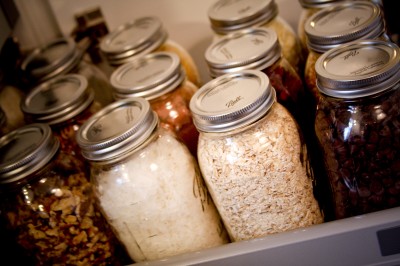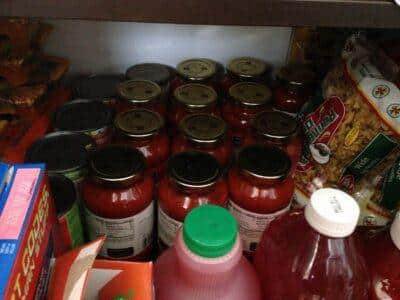When you make the grand decision to prepare and to stockpile food and other supplies, you do it for two reasons: You either want to be covered for things such as power outages, heavy snow or a car crash OR you’re truly concerned for the future of your country and the way things are going.
In what follows I’m hoping to do two things. First, I’ll do my best to convince you to prep for an even longer period of time than you originally planned. In the second part of this article I’m going to do something special: I’m going to help you increase the timespan of your preps — including your food — with little or no additional effort. And I’ll suggest a timeframe for your preps.
Does all of this sound good? Great!
You may have heard about EMPs and the possibility of an economic collapse. You’ve read news about stock markets crashing and you’ve seen footage of riots in the United States. But the fact of the matter is there’s an entire list of events that could strike at any moment, proof that we need to extend the time frame in which our preps can keep us safe, well-fed and healthy.
The easiest way to list and understand all of them (yes, they are many) is to split them into categories.
The first category contains small critical events that affect a small number of people at a time (and are the ones I recommend you start with if you’re a newbie prepper). Think car crashes, CO intoxications, pickpocketing, food poisoning and so on. A lot of preppers and survivalists are less concerned about Doomsday and just want to be ready for these unfortunate accidents. It’s great that they’re taking action but …
The World’s Healthiest Storable Survival Food — And It Stores For YEARS and YEARS!
While you’re at it, why not put in a little more effort and prepare for “medium-sized” events and catastrophes? By “a little more” I mean maybe 10, 20 or 30 percent more and, since you’ve already committed to stockpiling, that’s not too much to ask. These category 2 events usually don’t last more than a week and can affect a town or even an entire region. I’m talking riots, heavy snow, flash floods, heavy rain, extreme temperatures and even grid-down situations.
Remember what happened in New York during the worst snowstorm in recorded history? Flights were cancelled, cars were banned from going in and out and people formed huge lines to buy last-minute supplies. Now, if you’re already thinking of preparing for the first category of events, you can cover these second types of scenarios as well by being just a little bit more focused.
We’ll get to that in a moment, but let me just say a few words about the third category of events, the ones most people think about they hear the words “survival” and “preppers.” Pandemics, an economic collapse, an EMP bomb, war … these aren’t just threats, they are real threats.
Which ones should you prep for? I can’t answer that for you, but I’m hoping that deep down you realize that an EMP or an economic collapse are more than just fantasies. On the other hand, if you’re only concerned with the first category, it’s tough for me to convince you to prepare for an economic collapse, for example.
I’ll leave the final decision to you as I made a promise and I intend to keep it. Here are a few things you can do that will actually help you prepare for more events with little additional effort:
- Get foods with long shelf life. Well, as long as you’re putting in the effort and the money, why not get the most bang for your buck? Try these: Spam, hard-tack, powdered milk, cocoa powder, pink salmon, canned food, jam and honey.
- Buy in bulk. Band-Aids, floss, Mylar emergency blankets, toilet paper, shampoo, soap — these can all be bought in larger quantities. What will you do with the rest? Well, some of them you’re going to use anyway (floss, TP), and others you can split with your family members to assemble their own survival bags while the rest can sit in your pantry or at your retreat for dark days. The trick is to hunt for discounts, coupons and sales, but if you’re too busy, you can delegate this to your kids and get them involved in survival.
- Stock up on multi-purpose items. Same effort on your side but you’ll be better prepared. Here’s a quick list to get you started: duct tape, paracord, bandanna, floss and Ziploc bags.
- Get 2-in-1 items. Well, some of these are actually n-in-one. For example, some hand-crank radios have a flash light, a solar panel and a built-in phone charger.
- Want to extend the life of your survival food stockpile for free? Easy. Stockpile more water. If you have three months’ worth of food but only a week’s worth of water, you won’t last long enough to consume all of your food simply because you’ll die of dehydration. Water is free and I’m willing to bet that in an emergency it will last you far less than you estimate right now.
Assess your situation, figure out which disasters are most likely to hit from all three categories and start with those. As for the time frame, I recommend prepping for three days first, then three weeks, three months and then one year. However, keep in mind the ultimate goal is to be ready for a disaster that will last a year (e.g. a job loss can keep you with no income for that long and you’ll be happy you stockpiled so much food).



